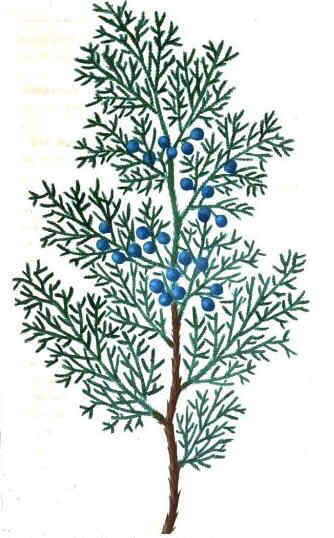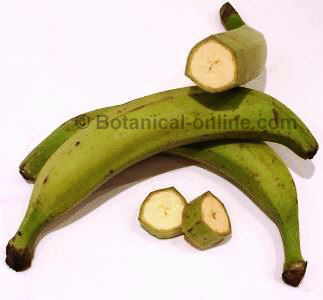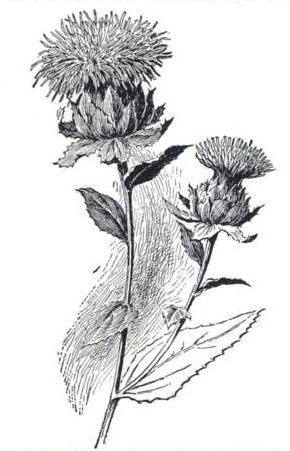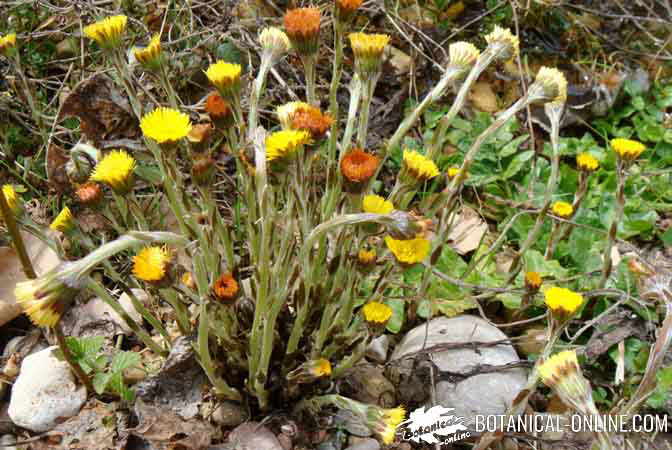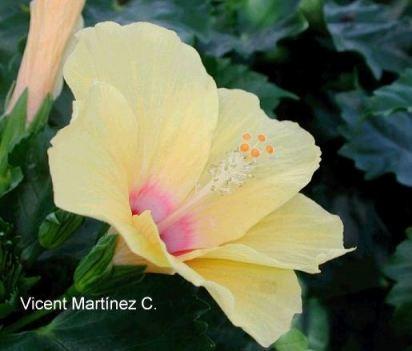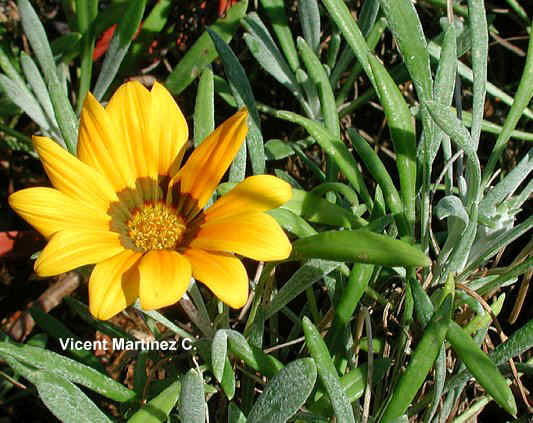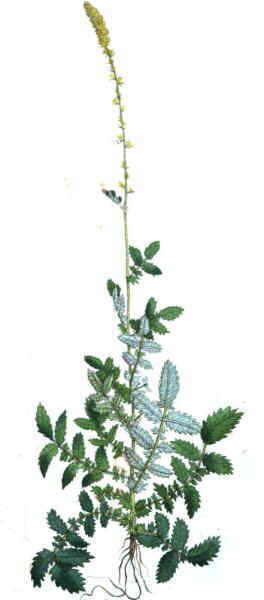Contents
- 1 Herbal remedies for depression
- 1.1 Medicinal plants for depression
- 1.2 How to cure depression with phytotherapy
- 1.3 Traditional treatment of depression with plants and natural remedies
- 1.4 Antidepressant medicinal plants
- 1.5 Preparations for depression in internal use
- 1.6 Nutritional supplements for mild depression
- 1.7 Preparations with plants for depression in external use
- 1.8 Is coffee good for depression? Stimulating plants for depression
Herbal remedies for depression
Medicinal plants for depression
The natural treatment of depression consists above all in avoiding to fall into a depressive state when the first symptoms or a complicated situation arise. Medicinal plants are a good adjuvant in the treatment of these early depressive symptoms, such as insomnia, nervousness, or apathy.
When depressive symptoms do not improve or get worse, it is advisable to seek advice from a physician.
How to cure depression with phytotherapy
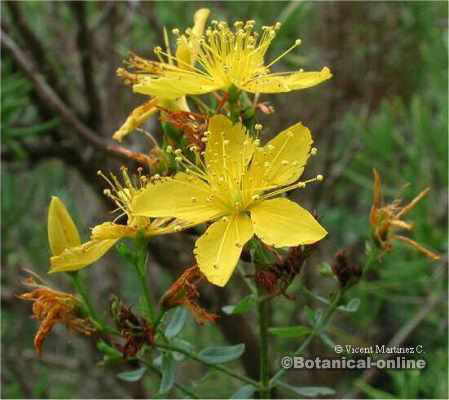
The primary role of herbal medicine is to use those plants whose purpose will result in:
- Avoid falling into a depressive state when the first symptoms are suspected.
- Toning and balancing plants that help raise the mood and cope with new situations
- Treatment of mild depression and nervous states, insomnia, and other effects it produces
- In the medium and mild depression , encourage the replacement of antidepressant drugs, which have many side effects – weight gain, gastric problems, hypertension, etc. – with other less aggressive natural remedies.
This substitution should be made gradually, once the initial crisis is overcome, without leaving the initial treatment, something that could cause a relapse.
Traditional treatment of depression with plants and natural remedies
- Passionflower (Passiflora caeurulea) (Infusion of a couple of teaspoons of the dried plant in half a liter of water. Drink a couple of small cups a day) (Maceration of the desired quantity of dried plant with the same amount of alcohol for a week. Filter and take about 25 drops per day) (View contraindications and possible toxicity in the general study of the plant
- Lemon balm (Melissa officinalis) (Infusion of a spoonful of dried plant per cup of water. Take 3 cups a day)
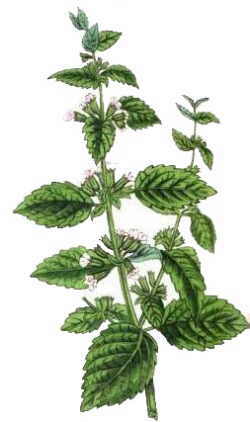
- Ginger (Zingiber officinale) (Eat fresh ginger with meals or take 3 capsules of ginger powder per day divided into 3 doses. On sale in pharmacies and health shops) (View contraindications and possible toxicity in the general study of the plant)
- Ginseng (Panax ginseng): Ginseng is an adaptogenic plant suitable for neutralizing stress and helping to adapt to stressful situations. (Capsules of extract of ginseng as indicated in the package leaflet)
- Linden (Tilia x europaea): One of the most used resources against nervous problems (Infusion of half a tablespoon of dried flower dessert per glass of water.) Take 3 or 4 glasses per day, depending on the personal state)
- Valerian (Valeriana officinalis) (Infusion of about 15 grams from the root which has to be left in water all through the night.) (Capsules of valerian powder according to the patient information leaflet) (View contraindications and possible toxicity in the general study of the plant
Antidepressant medicinal plants
- St. John’s wort, Hypericum (Hypericum perforatum) (10 drops of tincture three times daily) (A teaspoon of crushed flowers per cup of water. 2 cups day) (View contraindications and possible toxicity in the general study of the plant)
- Maca (Lepidium meyenii) Maca is used to prevent depression (1.5 g. maca daily, divided into 3 doses of 0.5 g., during a period of 30 days)
- Turmeric (Curcuma longa) All scientific studies conclude that turmeric is a natural antidepressant, and can be used in people with depression, seasonal depression or affective disorders. Turmeric extract attenuates the physiological consequences of stress. It acts by inhibiting the enzyme monoamine oxidase A (MAO A), causing higher levels of serotonin. (Recipes with turmeric)
- Damiana (Turnera diffusa): It is an aid against mild depression. (Mother tincture)
Preparations for depression in internal use
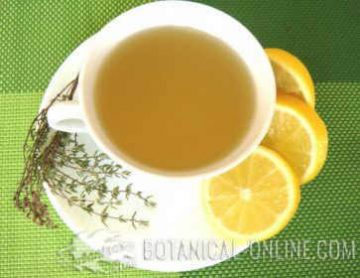
- Thyme: (Thymus vulgaris): Thyme stimulates intellectual functions. (Take three cups a day with the infusion of one teaspoon of dried flowers per cup)
- Wild thyme (Thymus serpyllum): With the same properties and indications as thyme.
- Saffron (Crocus sativus): It has also been studied for its antidepressant properties. Double-blind studies have found that 30mg. daily of saffron extract for 6-8 weeks is as effective as fluoxetine (drug for depression) in cases of mild and moderate depression. (30 mg per day of saffron extract).
- Chamomile: (Matricaria chamomilla) Having mild sedative properties, it is adequate to relieve the physical effects of psychosomatic nature caused by depression, such as tachycardia, heartburn, headache, etc. (Infusion of a spoonful of dry flowers. Have a cup at night before sleep)
- Willow: (Salix alba) (Infusion of a pinch of dried leaves and flowers. Three cups a day)
- Hawthorn (Crataegus oxycanta) (A spoonful of syrup 3 times a day. It is sold in pharmacies.
- Meadow clary (Salvia pratensis) (30 drops per day of tincture)
- Mint, Peppermint: (Mentha rotundifolia, Mentha X piperita) (To calm heart palpitations can drink hot water with a few drops of its essence)
- Yarrow (Achillea millefolium) (mixture of chamomile and yarrow tincture at 4 drops a day after the three main meals)
- Reishi (Ganoderma lucidum): Medicinal mushroom to increase the vitality of the organism and adapt to stress: tired people, students, people with a lot of stress, sadness, lack of energy, etc. It is useful to improve mood and provide energy.
- Kumquat: (Fortunella spp) Vitamin C helps build brain neurotransmitters and helps against seasonal depression. (Take the whole fruit, skin on)
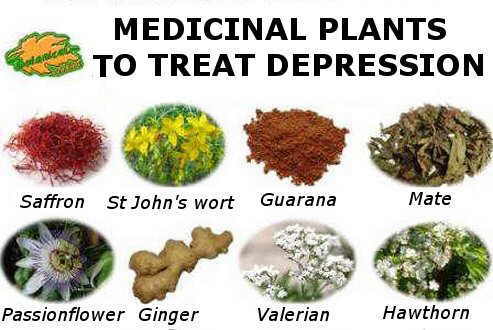
Some plants used in depression treatment
Nutritional supplements for mild depression
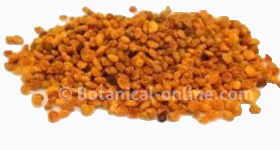
- Vitamin B: Vitamin B is responsible for the proper functioning of the nerves. The use of supplements of vitamin B1 (thiamine) and folic acid is very interesting to treat depression.
- Along with vitamin B supplements it is recommended to remove foods with a lot of refined sugar (bakery, chocolates, cookies, cakes, etc.) because excess of sugar is a thief of these vitamins. Substitute it by fruits, compotes, sweet recipes, etc. In addition, the consumption of these foods can increase overweight and obesity, which is also related to more depression.
- Royal Jelly: Fresh royal jelly is taken in the morning and provides plenty of energy and vitamins. It is invigorating, it is taken to produce an improvement throughout the body.
- Pollen: Pollen is a food with many beta-carotenes (vitamin A for skin health, hair, digestive system, immune system,…) and a small amount of protein needed to manufacture neurotransmitters. Pollen can be taken with water, milk, yogurt, or sprinkled on top of the fruit. The recommended daily amount is 1 teaspoon, 1-3 times a day.
Preparations with plants for depression in external use
The best solution is to use the plants in baths to take advantage of its tonic and soothing properties of an unbalanced nervous system:
- Clary sage (Salvia sclarea): The essence of sage clarity has properties against depression and stress, demonstrated in scientific studies. (Smell a few drops of essential oil of Roman sage or amaro)
- Chamomile: (Matricaria chamomilla) (Add to the water of the bath the resulting liquid from a well-infused infusion of dried flowers, you can also add about 15 drops of essence)
- St. John’s wort (Hypericum perforatum) (Seat and foot baths with the liquid resulting from having the plant immersed in cold water for 10 hours, after being filtered and poured hot in the bath)
Is coffee good for depression? Stimulating plants for depression
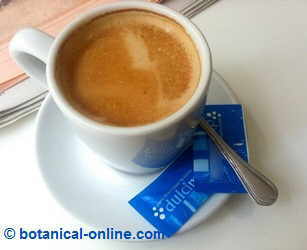
Generally, specialists do not recommend drinking too much coffee or caffeinated beverages to people with depression because caffeine degrades serotonin that is necessary to maintain a personal state of confidence, well-being and balance. Stimulating or exciting plants with caffeine should not be used for depression. Some people say they feel better when they drink coffee. Other people are more anxious after drinking caffeine-containing drinks such as coffee, mate, black tea, guarana, chocolate, or cola drinks. (however one of the traditional uses of mate or guarana is their anti-depressive properties)
When you are a good coffee drinker, you may also experience mild depression when you give up this habit.
Similarly, the use of other stimulant drugs should be avoided.
![]() More information on depression.
More information on depression.


